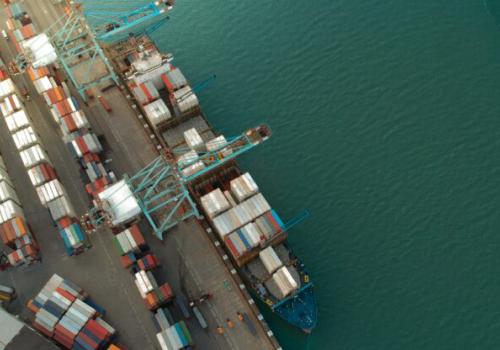Belgium’s exports of chemicals including pharmaceuticals to the United Kingdom fell by 23% in the first nine months of 2020, according to the sector federation Essenscia. During the period in question, the UK was still in the transitional phase of Brexit, and was still enjoying the same trading terms it had as a full member state. However, the approach of Brexit still had a dampening effect on trade, visible not only in 2020 but also from a fall of 10% in exports in 2019, by which time it was clear Brexit was going to be a substantial blow to trade between the UK and the EU27. “Thanks to the trade and cooperation agreement that was concluded at the last minute, and which entered into force on New Year’s Day, the absolute horror scenario of a ‘no deal’ Brexit with associated import duties has been avoided for the time being,” Essenscia said in a statement. “Nevertheless, the economic damage to chemicals and pharmaceuticals – with a third of total Belgian exports the most important export sector in the country – is already considerable.”
Based on figures from the national bank, the federation concludes that 2019 saw a drop of 10% in exports, followed by 23% in January to September 2020, in comparison with the first nine months of 2019. Over the same period, Belgian exports to the UK in general fell by only 16%. Going back to 2015 before the Brexit referendum, the UK represented 7.5% of Belgium’s chemicals and pharma exports; by 2020 that share had gone down to 4.7%. The industry still represents 23.8% of all exports to the UK, compared to 28% in 2015. Among the sectors within the industry more hard hit are pharmaceuticals (-29%), plastics (-23%) and bulk chemicals (-22%). On the import side, there was a decrease of 20-25% for imports from the UK of plastics and chemicals, roughly in line with other imports.
Imports of pharmaceuticals, meanwhile, almost doubled, largely as a result of vaccines, and mainly because of Belgium’s central role as a distributor of vaccines to the rest of Europe – seen most clearly with the release of the first vaccine by Pfizer, sent out to Europe from the company’s centre in the small town of Puurs in Antwerp province. “Together with the corona crisis, Brexit is severely affecting the economic results of chemical and pharmaceutical companies. This once again proves how important exports and international trade are for an open economy like the Belgian one,” said Yves Verschueren, managing director of Essenscia. “Brexit also shows how vulnerable our international competitive position is. In the interest of prosperity in this country, we must continue to work for ambitious trade agreements and against obstacles to the free trade system so that the Belgian economy, with the chemical and pharmaceutical sector in the lead, can continue to play its role as an export country on a global level.”
